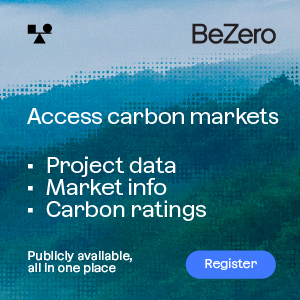Former Australian Prime Minister Kevin Rudd is fronting an effort to build a common emissions trading market spanning China, Japan and South Korea, nations that collectively emit around a third of the world’s greenhouse gas emissions.
Rudd is now president of US-based Asia Society Policy Institute, an educational organisation with the objective of promoting mutual understanding and strengthening partnerships between the US and Asia, including on environmental issues.
He twice failed to implement an Australian carbon market during his first tenure as PM amid fierce political opposition, but is hopeful the push for a common CO2 market in East Asia’s three biggest economies will be more successful.
“It’s a region with mutual economic interdependency, and the real question of a common carbon price lures,” Rudd told Carbon Pulse on the sidelines of the ongoing UN climate talks in Paris, but stressed he was “under no illusion” it would be easy.
China, the world’s biggest emitter, has launched seven pilot carbon markets and plans a national ETS from 2017. South Korea began its economy-wide scheme in January this year, while Japan currently has no interest in a domestic market, although it has signed bilateral offset agreements with 16 developing nations.
Rudd conceded that Japan’s unwillingness to impose cap-and-trade rules at home was one of the major challenges for the initiative to succeed.
“If we look carefully at Japan’s commitments on carbon emissions, the existing policy measures introduced will not be sufficient,” Rudd said.
“The political need for a carbon price in Japan is about to present itself to policy-makers.”
Japan has pledged to cut its emissions 26% from 2013 levels by 2030, generally considered one of the weakest developed-nation targets although domestic industry claims the goal is harsh.
But Rudd said even if Japanese policy-makers don’t think they need an emissions market, they are likely to face increasing pressure from those of its neighbours that have one.
“Do they expect China, South Korea or other competitors to simply wave away Japanese participation? I don’t think so. The pressure will come,” said Rudd.
COLD RELATIONS
Another potential stumbling block would be whether the three nations would want to set up a common market.
Japan’s relationship with China and South Korea is fragile, regularly soured by lingering political wounds from World War II. Rudd however thought those differences could be set aside.
“It hasn’t stopped the degree of economic interdependency from developing, and now they have a common pollution relationship,” Rudd explained.
“It is important that they develop a common arrangement to permit the purchase of carbon credits, and more importantly, a common carbon price,” he said.
Rudd has had initial talks with officials in the three nations, both at high level as well as with more hands-on bureaucrats.
“So far, so good” he said of the initial response. The project he is spearheading is hoping to present “the possible machinery of what a common market might look like and what the price might be” in around two years.
AUSTRALIA
Rudd, a supporter of using carbon prices to bring down GHG emissions, eyes a development where national markets eventually merge into regional ones, and said if common markets or CO2 prices were developed in North East Asia, Europe, North America and South Asia, around 90% of global emissions would be covered.
He also saw a role in the regional market for his native Australia, although not as soon as his Labor party leader successor Bill Shorten, who told Carbon Pulse earlier this week he was looking at a potential market link directly with China.
“I think Australia might fit in the North East Asian market over time,” Rudd said. “I think within five years we will have a functional market in Australia.”
By Stian Reklev – stian@carbon-pulse.com
Not yet signed up to CP Daily? Subscribe to our free newsletter here



